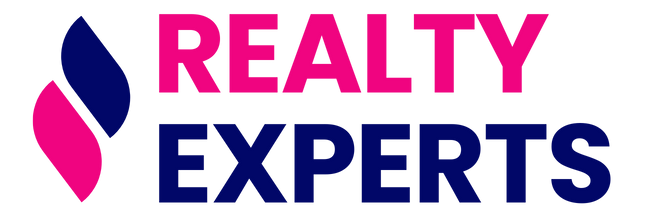Why Every Corporation Needs an AI Ethics Committee: Safeguarding Trust, Value, and Compliance

Photo by Kenny Eliason on Unsplash
Introduction
Artificial intelligence has rapidly become a transformative force in business, driving innovation, efficiency, and profitability across industries. But as AI systems increasingly shape products, services, and decision-making processes, the risks-ethical, legal, and reputational-have grown just as quickly. To navigate this complex landscape, corporations are turning to AI ethics committees , specialized groups dedicated to ensuring AI is developed and deployed responsibly. These committees play a crucial role in upholding integrity, protecting stakeholders, and guiding long-term value creation.
Understanding the Role of AI Ethics Committees
An AI ethics committee is a multidisciplinary team-often including executives, technologists, ethicists, legal experts, and external advisors-tasked with overseeing the ethical implications of AI use within an organization. Their responsibilities typically include:
- Reviewing and approving AI use cases, especially those considered high-risk
- Developing and updating ethical guidelines for AI development and deployment
- Providing training and resources on AI ethics to staff
- Ensuring compliance with evolving regulations and industry standards
- Serving as a point of contact for ethical concerns or whistleblowing
For example, SAP combines an internal ethics committee with an external advisory board to maintain both regulatory compliance and alignment with the company’s guiding principles for AI. Deutsche Telekom has turned its published AI ethics principles into practice with company-wide education and an AI ethics handbook for data scientists [1] .
Why Are AI Ethics Committees So Important?
1. Building Trust and Protecting Reputation Ethical lapses in AI-such as biased algorithms, privacy violations, or unsafe autonomous decisions-can trigger public backlash, legal action, and loss of customer trust. High-profile incidents, like Air Canada being held liable for misinformation generated by its chatbot, underscore the direct risks of neglecting ethical oversight [2] . By proactively reviewing AI deployments, ethics committees help prevent harm before it occurs, safeguarding the company’s reputation and earning stakeholder confidence.
2. Ensuring Regulatory Compliance and Corporate Accountability Regulators worldwide are tightening rules on AI, from the EU AI Act to proposed US legislation. Ethics committees enable companies to anticipate, interpret, and implement compliance measures. Novartis, for instance, has made AI ethics a board-level concern by integrating it into their ESG committee, ensuring strategic accountability for AI systems [2] . This not only reduces legal risk but also signals to investors and partners that the company takes responsible AI seriously.
3. Aligning AI with Core Values and Human Rights AI systems can amplify both positive and negative outcomes. Without oversight, AI may inadvertently reinforce discrimination or erode privacy. The Ethical Compliance Model recommends grounding AI practices in nine key principles: human values, fairness, transparency, accountability, human control, safety, privacy, nondiscrimination, and compliance with international human rights [3] . Committees ensure these principles are embedded into every stage of the AI lifecycle.
Steps to Establishing an Effective AI Ethics Committee
Creating an AI ethics committee is a strategic investment in the company’s future. Here are step-by-step instructions for implementation:
- Assess Organizational Needs and Goals Begin by evaluating where and how AI is used within your organization, and identify areas with the highest ethical risk. Consider the company’s size, industry, and regulatory environment.
- Define Committee Structure and Membership Build a diverse team including technical experts, legal counsel, ethicists, business leaders, and where possible, external advisors. Diversity of perspectives is crucial to anticipate and address a broad range of ethical challenges.
- Develop Clear Mandates and Procedures Draft a charter outlining the committee’s scope, authority, decision-making process, and responsibilities. Establish regular meeting schedules and reporting structures to ensure accountability.
- Create and Maintain Ethical Guidelines Base your guidelines on widely recognized frameworks, such as those from the IEEE, OECD, or industry-specific standards. Keep these guidelines up to date as technology and regulations evolve.
- Integrate Ethics into Corporate Governance Ensure the committee’s recommendations are formally incorporated into company policy and that senior leadership is engaged. For best results, connect AI ethics oversight with your board of directors or ESG committee.
- Provide Training and Foster a Culture of Responsibility Deliver regular training and open forums for staff to raise concerns. Empower employees at all levels to recognize and report ethical risks related to AI.
- Engage Stakeholders and Encourage Transparency Communicate openly with customers, partners, and the public about your AI ethics initiatives. Consider publishing annual reports or participating in third-party audits.
Organizations seeking external support can engage with industry councils like the AI Ethics Council , which brings together multidisciplinary experts and provides guidance, education, and policy advocacy [4] .
Challenges and Solutions in AI Ethics Oversight
Implementing an effective committee is not without challenges. Common hurdles include:
- Balancing Innovation and Oversight: Committees must ensure robust review without stifling agility or competitiveness. One solution is to embed ethics early, integrating reviews into the product development life cycle rather than as a final gatekeeper [1] .
- Resolving Conflicts of Interest: Tensions can arise when ethical recommendations conflict with business priorities. Including external advisors or rotating members can help maintain objectivity.
- Adapting to Evolving Standards: AI regulations and societal expectations are changing rapidly. Committees must stay informed and update guidelines proactively, leveraging resources from reputable organizations and participating in industry collaborations.
- Ensuring Accountability: Assigning clear responsibility to senior leaders and linking committee actions to performance reviews can reinforce compliance and commitment.
For smaller companies or those just starting with AI, industry groups, nonprofit initiatives, and public policy organizations can provide templates, training, and advice. You can search for resources from the IEEE, OECD, or the World Economic Forum, or consult your legal counsel for recommendations tailored to your jurisdiction and sector.

Photo by Kazuo ota on Unsplash
Case Studies: Ethics in Action
SAP maintains both an internal ethics committee and an external advisory board, ensuring that both regulatory compliance and internal values are honored. Their AI ethics handbook translates principles into actionable steps for data scientists and business leaders [1] .
Deutsche Telekom published ethical AI guidelines and rolled out company-wide training, demonstrating that education and engagement are essential for practical adoption of ethics principles [1] .
Novartis integrated AI ethics into its ESG committee, making responsible AI a top-level strategic concern and ensuring ongoing accountability [2] .
Alternative Models and Additional Pathways
Some organizations combine internal and external oversight, while others partner with industry councils, academic institutions, or nonprofit initiatives. The AI Ethics Council, for example, creates multidisciplinary working groups, publishes guidelines, and fosters education among business and community leaders [4] . For companies without the resources to establish a full committee, participating in these broader efforts can provide actionable guidance and access to best practices.
If you are starting from scratch, consider the following alternative pathways:
- Consult your industry’s trade association for recommended frameworks and compliance checklists
- Engage with local universities or ethics centers for expert advice and training
- Leverage open-access resources from the IEEE, OECD, or the World Economic Forum
- Seek guidance from legal professionals specializing in technology and compliance
Key Takeaways
The accelerating adoption of AI in business brings both unprecedented opportunities and significant risks. AI ethics committees are critical to ensuring that innovation aligns with ethical norms, regulatory requirements, and stakeholder expectations. By establishing a well-structured committee, companies can build trust, avoid costly missteps, and position themselves for sustainable success in an AI-driven world. Those looking to further their understanding or begin forming an AI ethics committee may start by researching industry guidelines, reaching out to professional associations, or consulting legal and technical experts familiar with AI governance best practices.
References
- [1] IMD (2024). How organizations navigate AI ethics – governance structures and case studies.
- [2] World Economic Forum (2024). Why corporate integrity is key to shaping the use of AI.
- [3] Directors & Boards (2024). AI Ethics for Boards and the C-Suite: The Ethical Compliance Model.
- [4] Operation HOPE (2024). AI Ethics Council – advancing guidelines and education for ethical AI.
MORE FROM realtyexperts.ai













